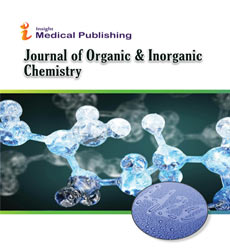Abstract
Rock-Water Interaction and Chemical Quality Analysis of Groundwater in Hard Rock Terrain of Chamrajanagara District, Karnataka, India Using Geoinformatics
Groundwater is one of the main natural resources having its application in various fields which affects its quantity. Groundwater pollution occurs when used water is returned to the hydrological cycle. The present study aims to assess the spatial variations of groundwater quality parameters in Southern tip of Karnataka using Geoinformatics technique. Efforts have been made to evaluate a total number of 46 representative groundwater samples (C1 to C46) from different parts of the study area during pre-monsoon period (April-May 2005) to assess its parameters such as F- , NO3-, CO3-, Cl- , Ca2+, Mg2+, Na+ , SO4 2-, Fe, K+ , pH and EC. Groundwater quality is found to be more controlled by rock-water interaction and residence time of water in aquifers and affected more by anthropogenic factors at many locations. Each Land Use/Land Cover (LU/LC) patterns and major lineaments are mapped and digitized using SoI topomap of 1:50,000 scale and IRS-1D, PAN+LISS-III satellite data through GIS software’s. Wide applications of chemicals, pesticides, fertilizers, herbicides in large agricultural and vegetative lands; mining activities are the major factors that are contaminating the soil and leaching through seepage, fractures, faults and joints (lineaments) into the groundwater. The study reveals the potentiality of Geoinformatics application in preparation of more consistent and accurate baseline information predicting the groundwater quality in Precambrian hard rock terrain of the study area.
Author(s):
Basavarajappa HT, Manjunatha MC , Pushpavathi KN
Abstract | Full-Text | PDF
Share this

Google scholar citation report
Citations : 150
Journal of Organic & Inorganic Chemistry received 150 citations as per google scholar report
Abstracted/Indexed in
- Google Scholar
- China National Knowledge Infrastructure (CNKI)
- Directory of Research Journal Indexing (DRJI)
- WorldCat
- Geneva Foundation for Medical Education and Research
- Secret Search Engine Labs
Open Access Journals
- Aquaculture & Veterinary Science
- Chemistry & Chemical Sciences
- Clinical Sciences
- Engineering
- General Science
- Genetics & Molecular Biology
- Health Care & Nursing
- Immunology & Microbiology
- Materials Science
- Mathematics & Physics
- Medical Sciences
- Neurology & Psychiatry
- Oncology & Cancer Science
- Pharmaceutical Sciences

